Five Eyes ‘an axis of white supremacy’
Beijing has ramped up its rhetorical attack on Australia, Canada, Britain and the US, as it bristles over criticism of its human rights record.
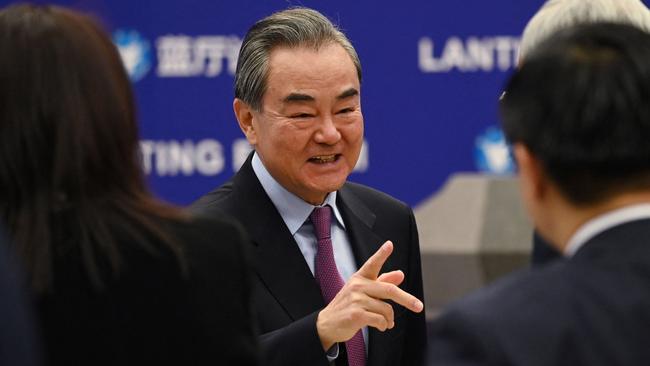
China’s state-sanctioned media has accused Australia, Canada, Britain and the US of being members of an “axis of white supremacy”, as Beijing steps up its rhetorical attack on members of the Five Eyes intelligence network.
A provocative editorial by the nationalistic Global Times — headlined “Five Eyes today’s axis of white supremacy” — said Canada, Britain and Australia were taking co-ordinated action against China. “They have formed a US-centred, racist, and mafia-styled community, wilfully and arrogantly provoking China and trying to consolidate their hegemony as all gangsters do,” the tabloid wrote.
“They are becoming a racist axis aimed at stifling the development rights of 1.4 billion Chinese.”
The editorial was published hours after Chinese Foreign Minister Wang Yi defended China’s hardline approach in Xinjiang at the UN Human Rights Council and said that talk of human rights should focus more on economic development.
And it came after China’s foreign ministry said Canada, Australia and the US had committed genocide against their indigenous people.
Macquarie University professor Bates Gill said Chinese officials were responding with a new “pointedness and forcefulness” to criticism of its human rights record “because they can”.
“They now have the power, the capacity and the will,” said Professor Gill, who is writing a book on China’s more assertive foreign policy under Xi Jinping.
“The great rejuvenation of the Chinese nation is not based on power alone. They also want to be accepted and respected.
“They want their enterprise — in their minds, this remarkable achievement that they have accomplished — they want it to be legitimated.”
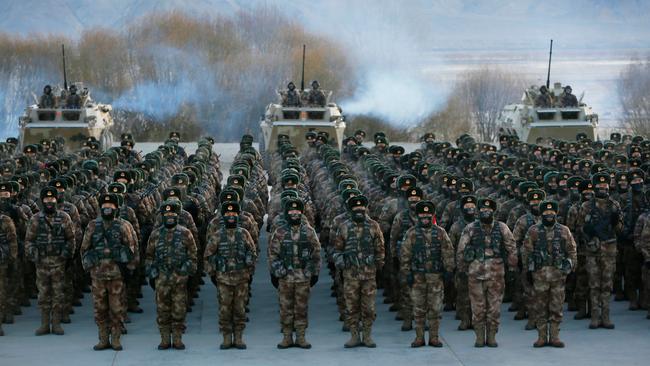
Hours before the Foreign Ministers’ address, Canada’s parliament passed a motion condemning China for committing “genocide” in Xinjiang and called on the International Olympic Committee to move the 2022 Winter Olympic Games from Beijing.
Canadian Prime Minister Justin Trudeau and his cabinet abstained from the vote, which was brought by the opposition Conservative Party but was supported by many members of the governing Liberal Party.
In one of his final acts as Donald Trump’s secretary of state, Mike Pompeo declared China’s repression of Uighurs in Xinjiang an act of “genocide”.
New Secretary of State Antony Blinken said during his confirmation hearing that he agreed with the term, but no other country has adopted the term.
The Economist earlier this month argued the term was “counter-productive”.
“China’s persecution of the Uighurs is horrific … But it is not slaughtering them,” the influential publication editorialised.
“If America makes what sound like baseless allegations of mass killing, patriotic Chinese will be more likely to believe their government’s line: that Westerners lie about Xinjiang to tarnish a rising power.”
In his UN address, Mr Wang said China’s controversial hardline policies in Xinjiang were necessary to counter “violent terrorism and separatism”.
The Xi administration responded to a wave of attacks by Uighur extremists in 2013-14 by putting an estimated one million members of the Muslim minority group into what it called “Vocational Education and Training Centres”, which were denounced as “prison camps” outside China.
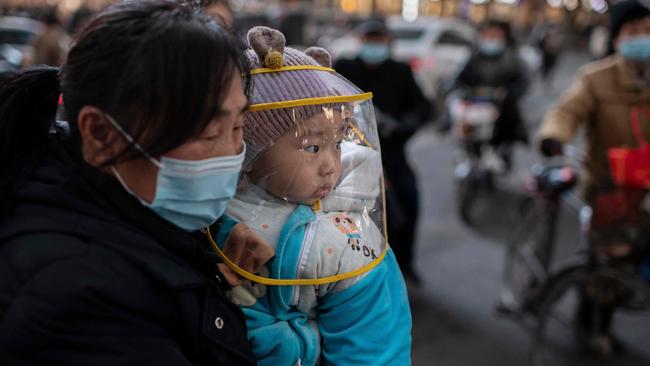
“There has never been so-called ‘genocide’, ‘forced labour’ or ‘religious oppression’ in Xinjiang,” Mr Wang said.
He also announced that China would welcome a visit to the region by the UN’s High Commissioner for Human Rights, which Australian Foreign Minister Marise Payne called for last week.
The Global Times editorial, published three months after its editor-in-chief Hu Xijin lunched in Beijing with Australian ambassador Graham Fletcher, said members of the “Anglo-Saxon” Five Eyes alliance “have a strong sense of civilisation superiority”.
“Except for New Zealand, the smallest of the five countries and unwilling to get too involved in international conflicts, the other four are increasingly co-ordinating their attacks against China,” it wrote.
Duan Liqiang, a retired worker in Beijing and regular Global Times reader, said foreign countries were jealous of China’s development.
“They never like to see us do well, and will attempt to suppress China all the time,” he told The Australian.
Mr Duan pointed to foreign countries that said China was the origin of the coronavirus pandemic.
“It is totally defamation,” he said.
More Coverage
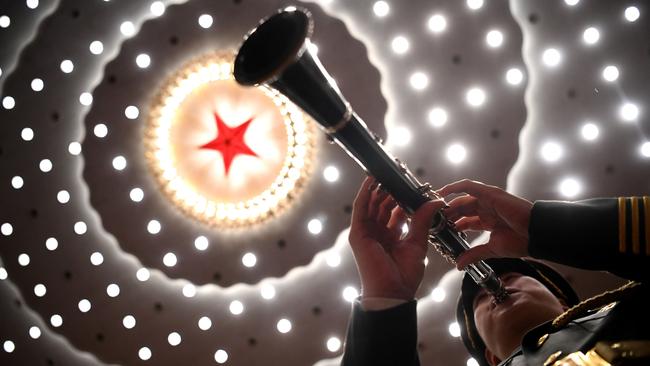


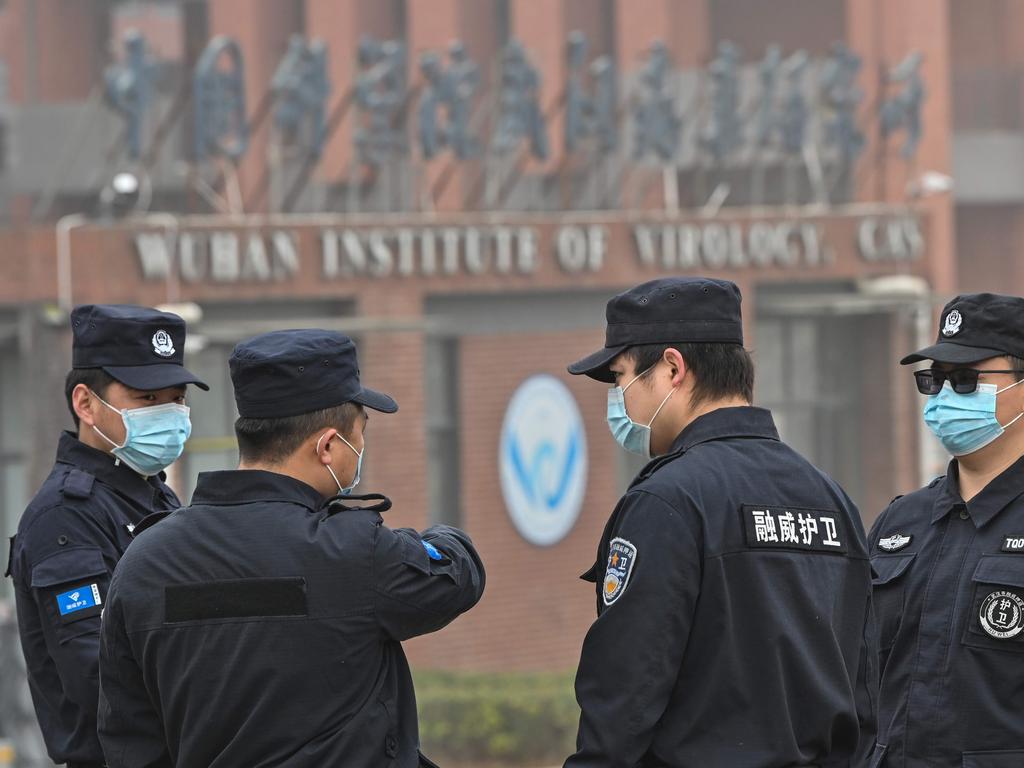
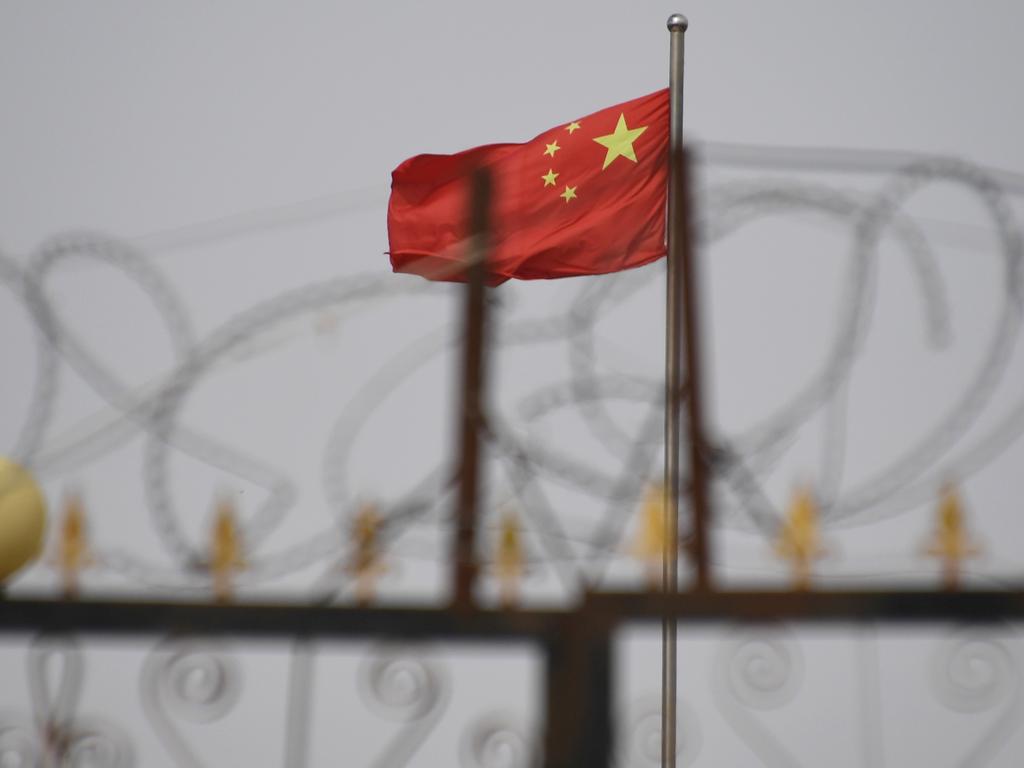
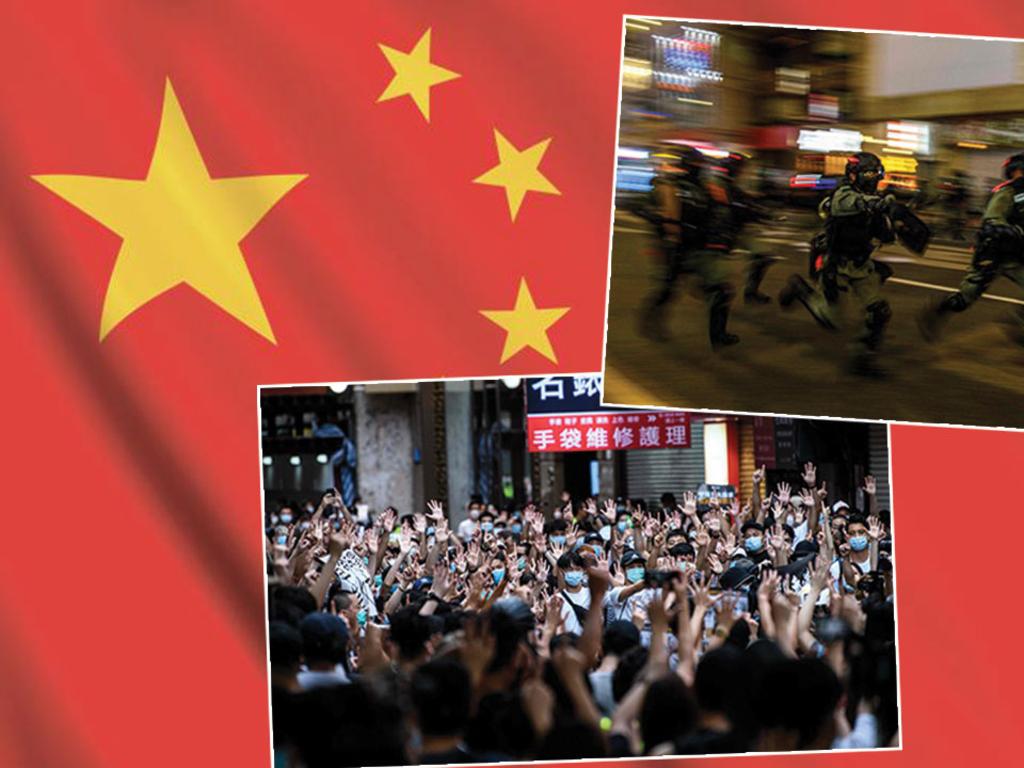



To join the conversation, please log in. Don't have an account? Register
Join the conversation, you are commenting as Logout